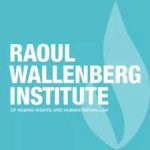
Raoul Wallenberg Institute of Human Rights and Humanitarian Law (RWI)
DUE: 08 JUL 2024
Call for Research Grant Proposals Environment, Climate Change and Human Rights in Zimbabwe
The Raoul Wallenberg Institute of Human Rights and Humanitarian Law (hereinafter “RWI”), Lund, Sweden, in collaboration with its academic cooperation partners under the Zimbabwe Human Rights Capacity Development Programme 2024-2026 (see enclosed Programme summary below), is launching a call (hereinafter “Call”) for research grants proposals. Grants under the Call are awarded to research projects relevant to the theme “Environment, Climate Change and Human Rights in Zimbabwe”. Academic faculty members and researchers from Zimbabwean universities, independent research centres, independent commissions and civil society organisations are eligible to apply both individually and jointly. Research projects must be carried out during the period 16 July 20 November 2024 and result in a paper and short policy brief for presentation and publication. Financial support to RWI for the research grants is provided by the Embassy of Sweden in Zimbabwe.
The closing date for submitting a research grant proposal is 8 July 2024.
Call Objectives and Priority Areas of Research
Human survival depends on the environment for direct and indirect wellbeing. As such, threats to the environment are threats to human rights, to peace, security and sustainable development. The multiple planetary crisis of this age which is made manifest through, inter alía, environmental degradation, biodiversity loss, pollution and climate change threaten human survival. This is exacerbated by growing multidimensional poverty, inequalities and fragility (UNDP, 2022). Thus, realizing the right to a clean, healthy and sustainable environment, including through strengthening positive environmental management and climate action is critical for addressing inequality and poverty, and enabling long term prosperity for all (UNEP, 2022; UNDP, 2022).
The recognition in 2022, of the human right to a clean, healthy and sustainable environment by the United Nations General Assembly is a step towards strengthening the global and domestic response to this crisis. This move buttresses the recognition of this right in domestic constitutions in many jurisdictions across the globe. Zimbabwe recognises this right in section 73 of the Constitution (Amendment 20) of 2013. Through this constitutional provision environmental protection (including climate action) has become a key consideration for the country’s ambitions to become a middle income economy by 2030. Yet, there is still much to be done to strengthen legal and institutional frameworks on human rights, environmental law and climate change.
Given the preceding context, this year’s Call is open for research grant proposals relevant to the
theme, “Environment, Climate Change and Human Rights in Zimbabwe” whereby research
related to the following areas is encouraged:
a. The role of our courts in advancing environmental constitutionalism for climate action.
b. The relationship between constitutional environmental rights and duties of state and non state actors.
c. Exploring the influence of the growing (global) jurisprudence on climate litigation in our jurisdiction.
d. Human rights, climate change and environmental governance, including measures to combat corruption, etc.
Click to Join Our Job Adverts WhatsApp Channel
&
Never Miss a Vacancy →
https://whatsapp.com/channel/0029
VaCw4tVGE56eQUhXKJ0B
Eligibility
Academic faculty members and researchers from Zimbabwean universities, independent research centres, independent commissions and civil society organisations are eligible to apply both individually and jointly. Proposals must demonstrate necessary support by the applicant’s dean/director (or equivalent).
Scope of Research Grants
Fifteen research grant proposals will be awarded with grants. Grants will be offered to applicants wishing to conduct research and to engage in desk/field research within Zimbabwe.
Expected Outputs
Peer and mentorship support is offered to all research grant recipients throughout the research. Grant recipients are requested to participate in an online research methodology workshop expected to take place 22 July-2 August 2024.
As a final output of the conducted research, each grant recipient is required to produce and submit an advanced draft of the paper (6000 to 10,000 words), together with a short policy brief (1500 words), no later than 20 November 2024. Grantees are expected to present and discuss their papers at a two-day National Symposium on “Environment, Climate Change and Human Rights in Zimbabwe”, expected to be held in Harare, Zimbabwe 2-3 December 2024. Grantees are also expected to present and discuss their policy brief in a workshop that will be held immediately after the symposium, that is, on 4 December 2024. Grantees are expected to submit their final paper and short policy brief on or before 20 December 2024.
Costs Covered by the Research Grant
The amount of the grant will be decided by the Selection Committee in light of the supplied simplified budget. In addition, the identified scope and needs of the research and other relevant factors of the project will be taken into consideration. As a point of reference, the budgets for individual research projects should not exceed USD 1000 and for a team of two on a research project USD 2000.
With regard to attendance at the National Symposium and Policy Brief Workshop expected to be held 2-4 December 2024 in Harare, all grant recipients who do not live in Harare or its vicinity will be provided with compensation for transportation costs, as well as accommodation and a fixed daily allowance, in accordance with standard rates applied by RWI.
RWI reserves the right to increase or decrease the number of research grants awarded based on the scope and content of and costs associated with the selected proposals and in light of available budgetary resources.
TO APPLY
CLICK HERE TO VIEW MORE AND APPLY
